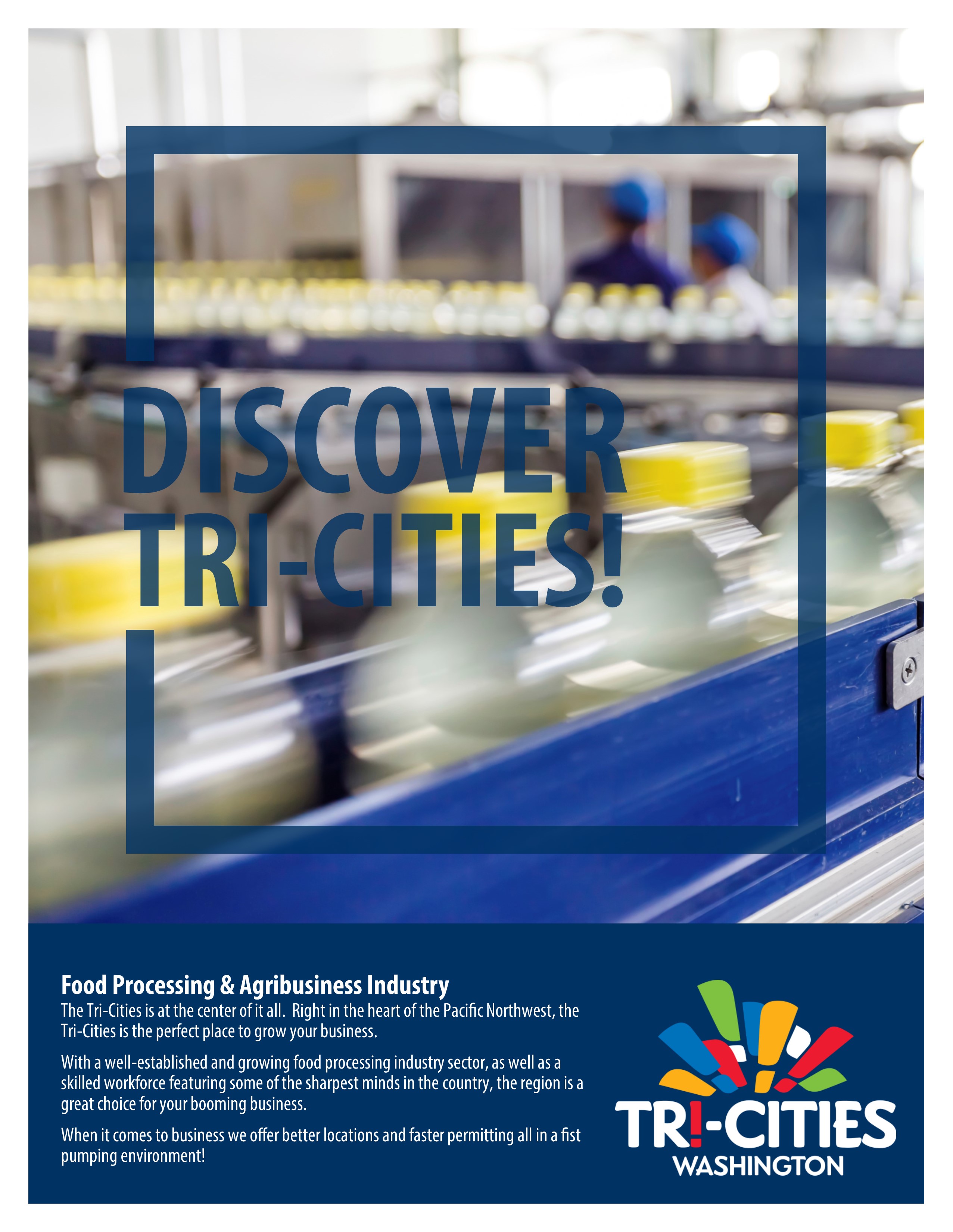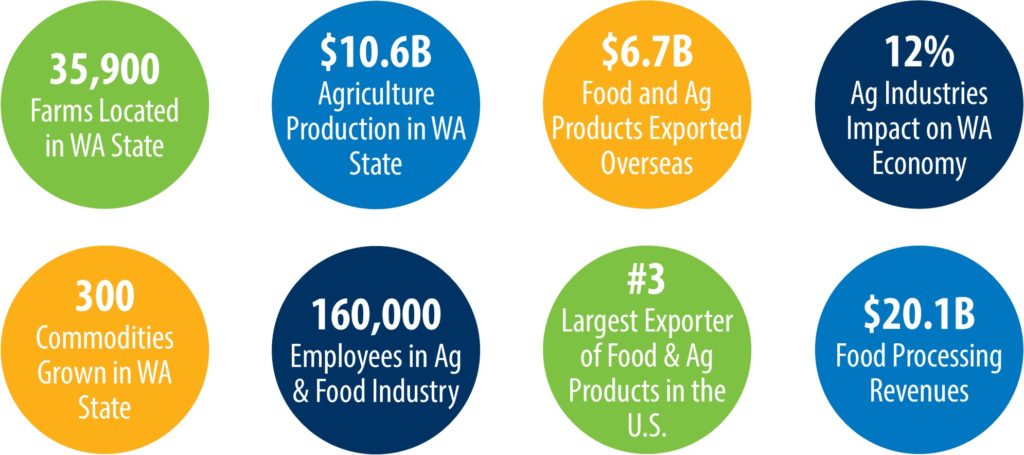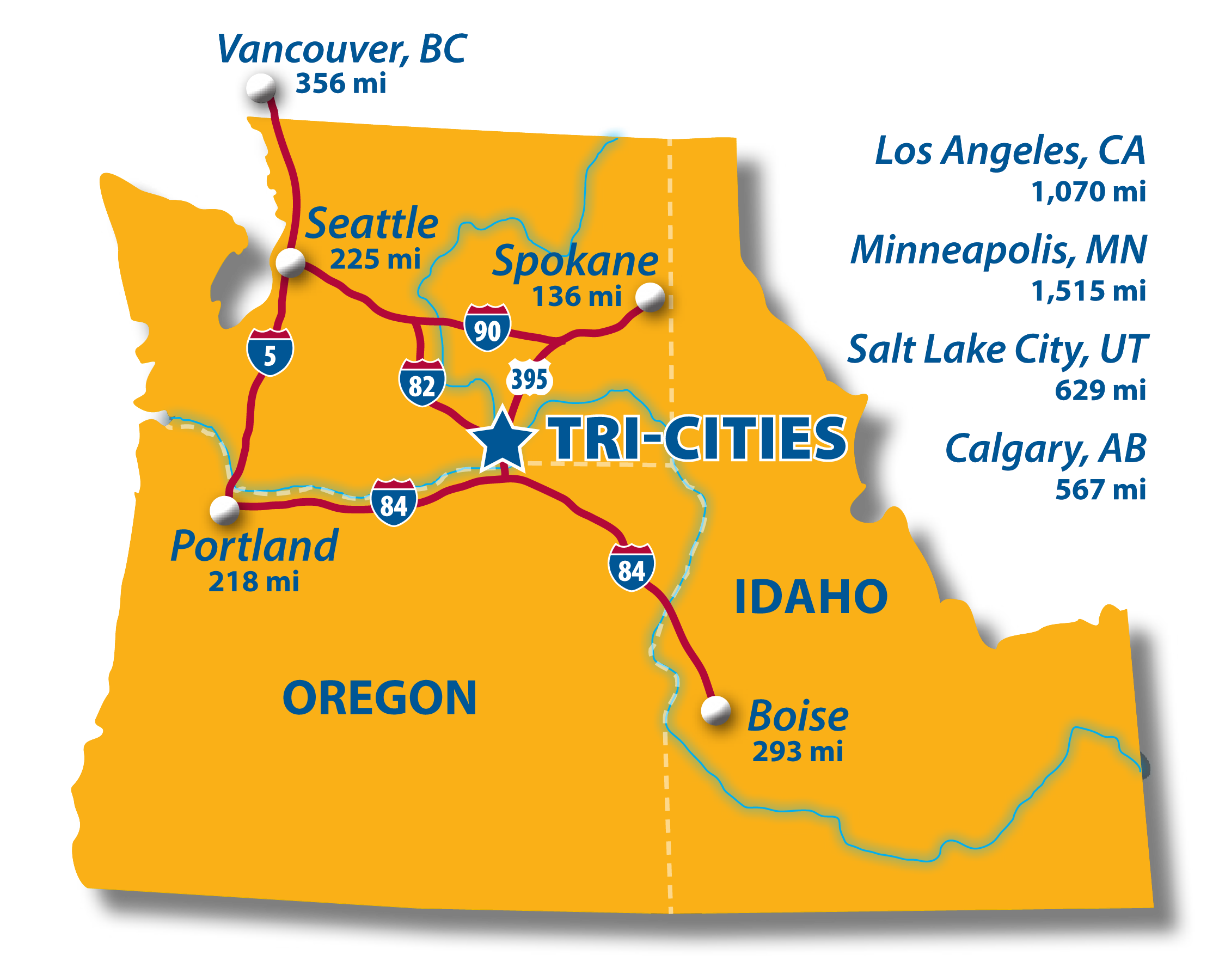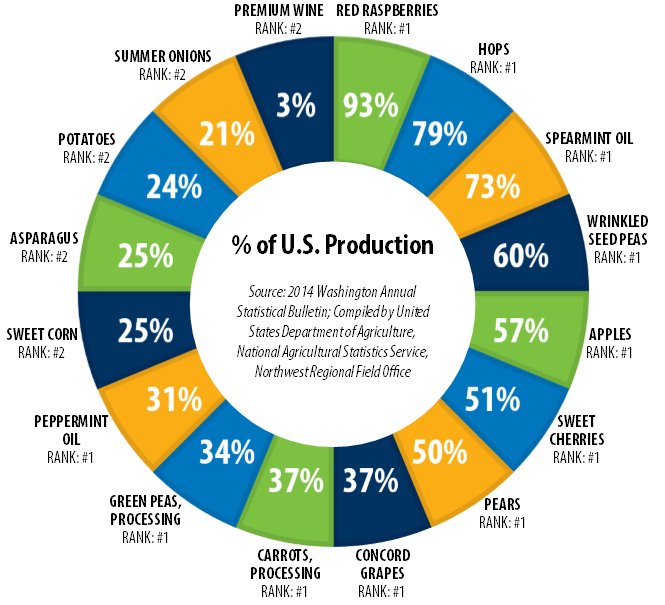Washington State’s Agriculture and Food Processing Industry
With 35,900 farms and 15 million acres of farmland, Washington State is known all over the world for its agricultural products and food production capabilities. Washington’s agriculture industry ranks 2nd in the nation producing 300 different crops.
Washington is a leading producer of numerous fruit and vegetable crops, making our state a key supplier of food for domestic and export markets. Our growers feed people across the U.S. and around the world. The agriculture and food manufacturing industry is a cornerstone of Washington’s economy in both rural communities and metropolitan areas.
Diverse geography, varied microclimates, low-cost energy and close proximity to major markets via land, sea and air, makes Washington a smart choice for value-added agriculture and food manufacturing firms. Prime growing and production
environments allow for businesses to expand, grow, and prosper here.
Washington is home to a large food processing industry that supports many supply and marketing services in machinery,
pesticides and fertilizers, transportation, packaging and more. The quality and safety of Washington’s agricultural products
continue to raise the State’s reputation around the world.
Agriculture and food and beverage production supports an estimated 164,000 jobs in Washington and accounts for approximately $20.1 billion in revenue. The State is the leading producer of apples, sweet cherries, concord grapes, hops, pears, red raspberries, and spearmint and peppermint oils, which are shipped around the globe to customers who appreciate their quality, flavor, and value. Washington is also a leader in seafood production, second only to Alaska in shipments of fish and shellfish.
Exporting Opportunities
Washington State is equidistant from Europe and Asia, connected by 75 public ports, 139 airports and 3,666 miles of railways, ensuring that your crops and food and beverage products arrive at their destination quickly and in good order.
About two-thirds of all Washington agricultural exports are destined for Asia. Ships can arrive up to two days sooner in key ports such as Tokyo and Busan. Airfreight can arrive in Beijing in less than 15 hours. Japan, Canada, China/Hong Kong, Philippines, and the Korean Republic are the top five markets for Washington agricultural exports.
To promote production and trade of value-added agriculture and food manufacturing products, the state offers an array of
incentives to companies who wish to do business in and with Washington State, including tax exemptions and deductions for manufacturers of fresh fruit and vegetable crops. Plus, the state doesn’t have a corporate or personal income tax, making it an attractive place to open new factories and production facilities.






